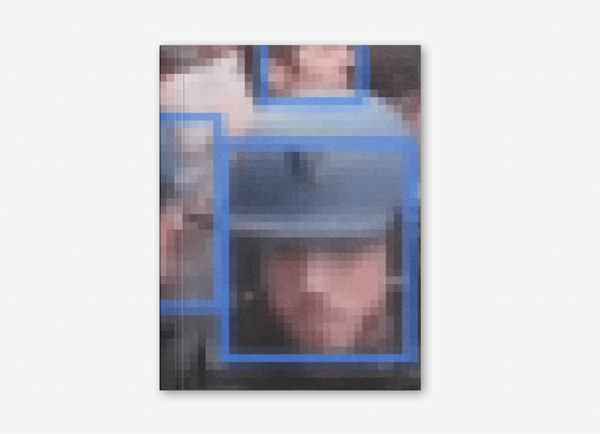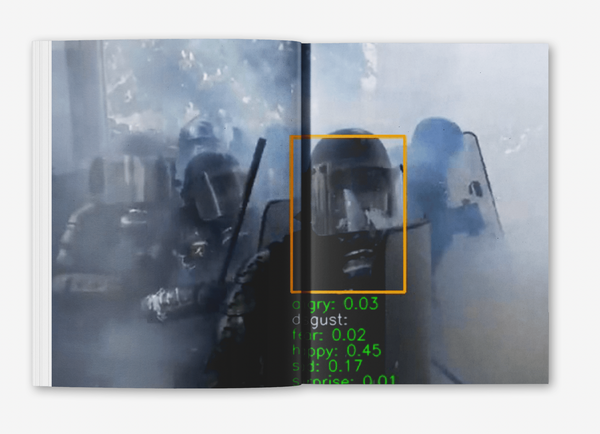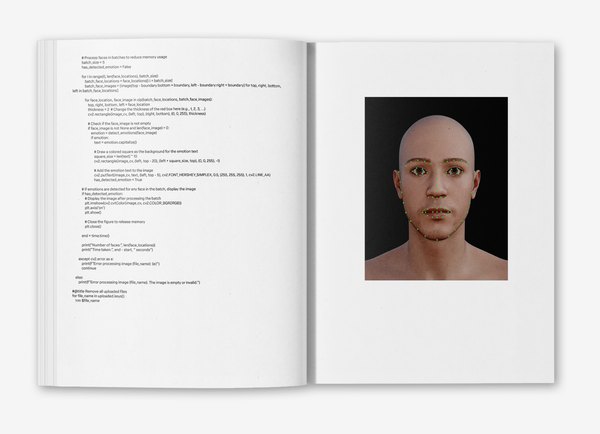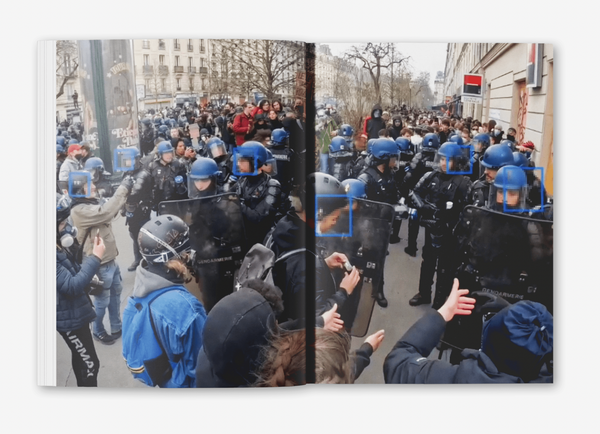




Marcel Top
Reversed Surveillance
Kult Books, Stockholm — 2024
The book Reversed Surveillance is a visualization of invasive surveillance technologies, challenging the prospect of automating crime detection during protests in France. The project reflects on the development and legislation of mass surveillance by offering a case study on how individuals can protect themselves using the very tools with which they are surveilled. The project bases on the idea that since it is unlikely to fully revert surveillance and its effects on society, society should explore ways to reverse its impact. In Reversed Surveillance, Marcel Top demonstrates the potential of reversing surveillance dynamics to protect the right to protest: by gaining knowledge of accessible surveillance tools, it is possible to ensure police accountability.
Marcel Top is a visual artist living and working between Belgium and London. His work explores themes of mass surveillance, privacy, and data collection. In his practice, Top blends traditional documentary research with experimental uses of new technologies. He initiated the Reversed Surveillance project following the enactment of new legislation allowing the use of AI-enhanced surveillance in France (Law No. 2023-380), using accessible algorithms and available protest footage to simulate how the use of Algorithmic Video Surveillance (AVS) can impact protesters.
"After witnessing police violence firsthand during the Yellow Vest movement in France, I became aware of the deep-rooted impunity that shields those in power. When the new law for algorithmic surveillance was proposed, I grew increasingly concerned about its potential effects on protesters. This injustice motivated me to create the 'Reversed Surveillance' project, using technology to turn the lens back on law enforcement and foster transparency and accountability where it has long been lacking. By empowering protesters, we can confront unchecked authority, challenge brutality, and reclaim the right to protest in the face of oppression.”
-Marcel Top